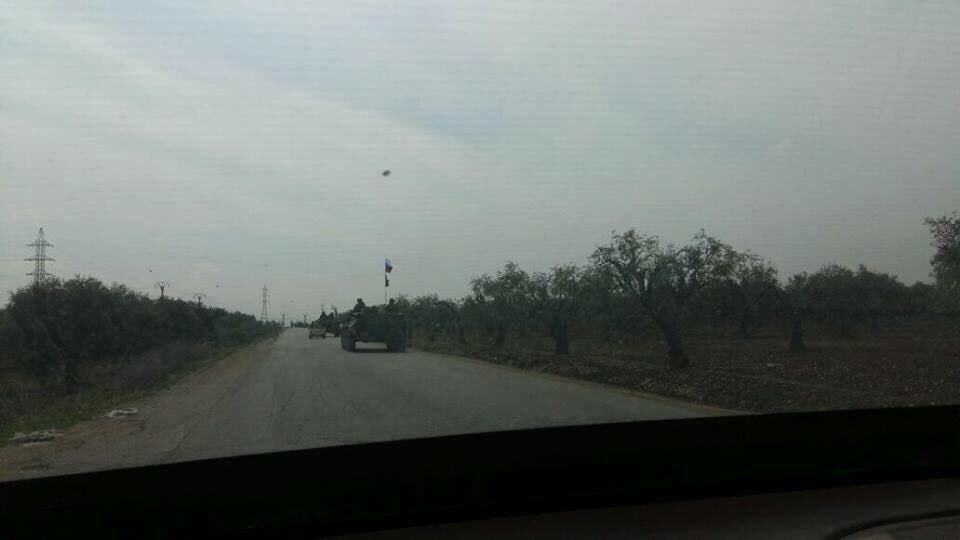Sourced: Al Jazeera
Russia is setting up a military base in northwestern Syria in agreement with the Syrian-Kurdish YPG armed group that controls the area and will train fighters, a YPG spokesman said on Monday.
The agreement with Russia was concluded on Sunday and Russian troops have already arrived at the village of Kafr Jina, in the northwestern region of Afrin, with troop carriers and armoured vehicles, YPG spokesman Redur Xelil told Reuters news agency.
“The Russian presence … comes in agreement between [the YPG] and the Russian forces operating in Syria in the framework of cooperation against terrorism and to help train our forces on modern warfare and to build a direct point of contact with Russian forces,” Xelil said in a statement.
“It is the first [agreement] of its kind,” he added.
However, in a statement put out shortly after news broke of the alleged deal, the Russian Defence Ministry said there were “no plans” to create additional military bases in Syrian territory, but added that a section of its “reconciliation centre” was located in Aleppo province close to Afrin for the prevention of ceasefire violations.
The YPG announcement angered neighbouring Turkey. Ankara views YPG as an extension of the Kurdistan Workers’ Party (PKK), which is waging an insurgency inside Turkey aimed at gaining greater autonomy.
Turkish Deputy Prime Minister Numan Kurtulmus said it would not accept a “region of terror” in northern Syria, and the ethnic structure of the area should be kept intact.
Turkey has launched a cross-border offensive along a section of the Turkish-Syrian frontier to prevent further gains by YPG, which controls swaths of northeastern Syria and the Afrin pocket of northwestern Syria.
Turkey’s troops pushed into Syria in August of last year in an effort to push Islamic State of Iraq and the Levant (ISIL) away from its border and to prevent Kurdish efforts to connect its two pockets of control in Syria’s north.
The YPG – or the People’s Protection Units – is also allied to the United States in the fight against ISIL, and is playing a major part in the US-backed offensive against ISIL’s urban stronghold of Raqqa, further east.
“The agreement came into force today,” Xelil said, declining to say how many Russian troops had arrived in Kafr Jina, the place where the base is being established.
Kafr Jina has previously been shelled by Turkish forces from across the nearby frontier, Xelil added.
The spokesman said that the YPG aims to expand its fighting force by nearly two-thirds to more than 100,000 fighters.
The group had about 60,000 fighters at the end of 2016, he said, and has already formed 10 new battalions – each comprising 300 fighters – since the start of this year.
The 10 new units and other new battalions to be formed this year will be trained in all forms of combat, weaponry and tactics, with the aim of turning the YPG into a more organised force that resembles a traditional army, Xelil said.
“A disciplined, cohesive military force, well-trained in different tactics of war … is the true guarantee to defend us and to affirm our presence as a great nation that deserves dignity,” said a YPG leaflet seeking recruits for the new battalions that has been circulated in the predominantly Kurdish regions of Syria, which is home to roughly two million Kurds.
Each fighter will reportedly receive a monthly salary of $200, which is $20 above the maximum wage currently paid to YPG fighters.
Aaron Stein, a senior fellow at the US-based Atlantic Council, told AFP news agency that Russia was now partnering with the Kurds as they had become an important player in Syria.
“The Kurds are now the most consequential non-state actor in Syria, alongside al-Qaeda … They will have a huge say over the future of Syria,” Stein said.
‘No problem with the regime’
Syrian Kurdish groups established three autonomous administrations in Kurdish-dominated areas of northern Syria as Syrian state control collapsed in much of the country, setting up their own bureaucracies in addition to security forces.
Officials say their revenue streams include taxes on agricultural produce, and income raised by selling oil from fields in northeastern Syria, though they say only enough is sold to meet local needs.
The YPG commander Sipan Hemo told Reuters last week that the operation to storm Raqqa was due to start in early April, and the YPG would make up a quarter of the force that will take the city alongside allied Arab fighters. The Pentagon said no decision had been taken yet.
Xelil said the new battalions were not taking part in the operation to encircle Raqqa. He declined to say if the new training programme was supported by any foreign militaries.
The YPG and its political affiliate, the PYD, along with other Syrian Kurdish groups, aim to deepen their autonomy through the establishment of a new system of federal government in the north. The Kurds, systematically persecuted for years by the Syrian state, say their aim is not independence.
Hemo said the YPG aimed to “fight terrorism” everywhere in Syria, while its political priority was “guaranteeing the rights of the Kurdish people in Syria legally, constitutionally”.
He also signalled a readiness on the part of YPG to reach a long-term accommodation with the Syrian government, saying “there will be no problem with the regime” once Kurdish rights are secured.
Syrian President Bashar al-Assad has stated his opposition to the regional federal model, which the dominant Syrian Kurdish groups say should be the solution to the Syrian war. Assad has vowed to take back all of Syria.

